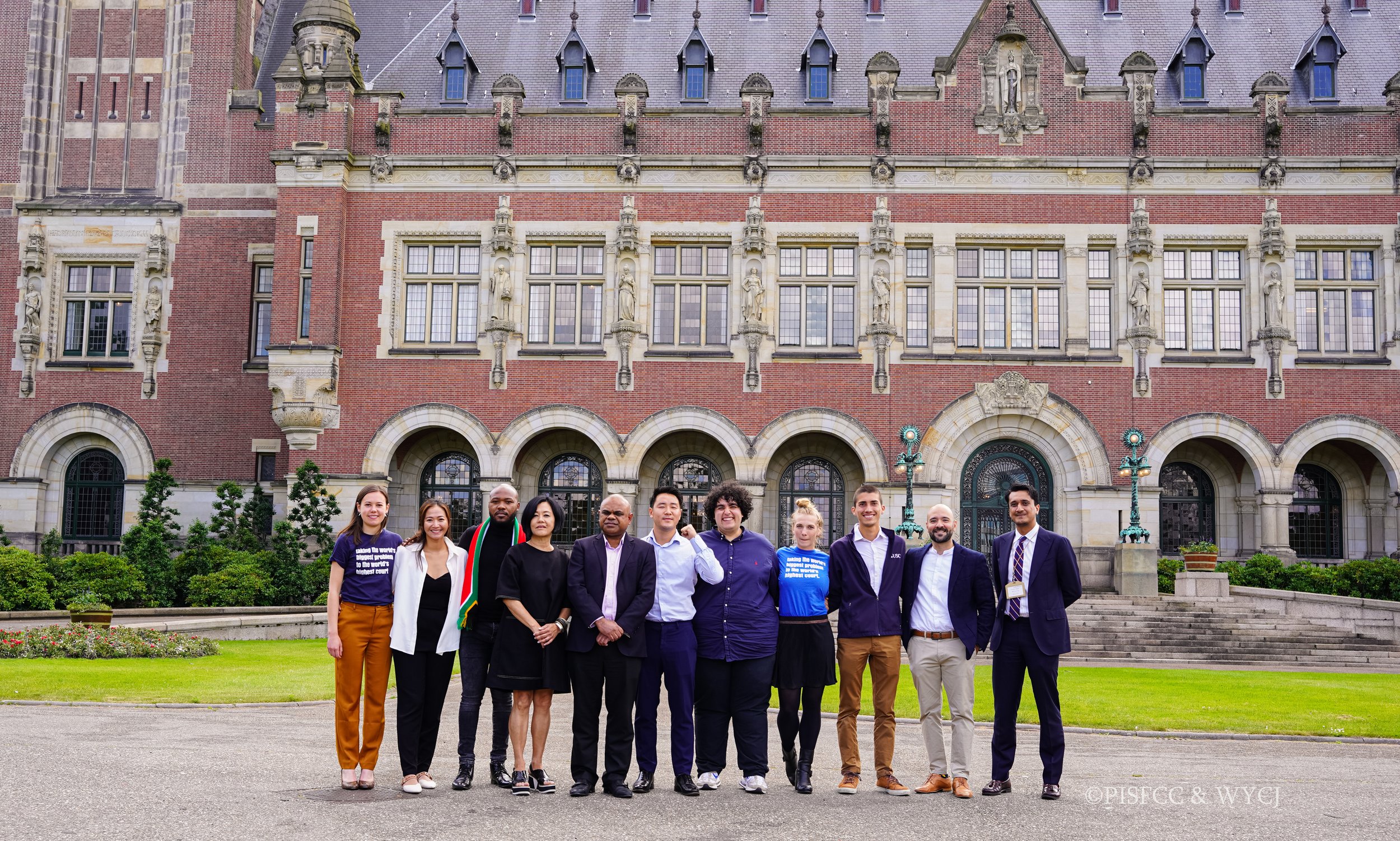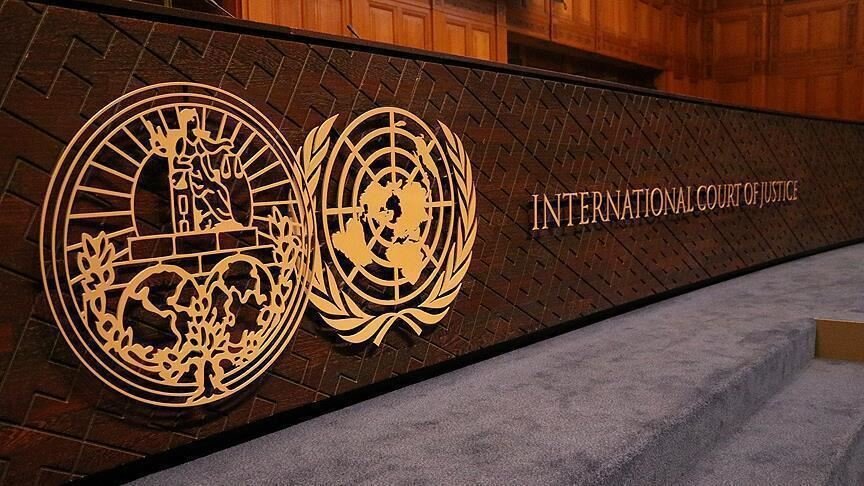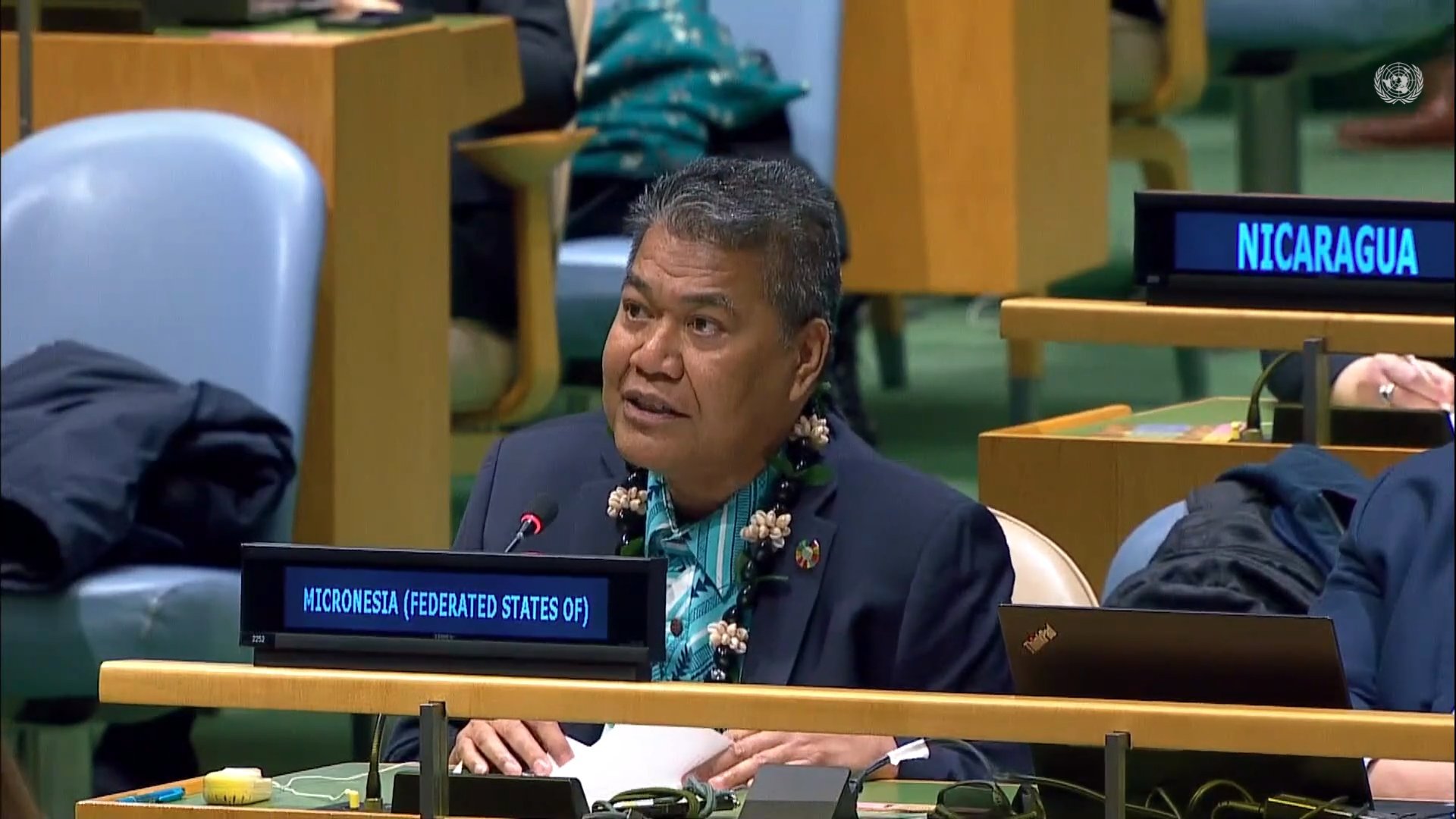The ICJ Advisory Opinion
Find out who, how and when can participate in the advisory proceedings before the ICJ
The International Court of Justice (ICJ) is the principal judicial organ of the United Nations, located in the Peace Palace in The Hague, the Netherlands, and was established in 1945.
The ICJ is the only international court that settles disputes between the 193 UN Member States. It consists of 15 judges who are elected by the UN General Assembly and Security Council.
The court also provides advisory opinions on legal questions referred to it by authorised United Nations organs and specialised agencies. It is assisted by a Registry, its administrative organ. Its official languages are English and French.
Final UN draft resolution released for adoption
On 29 March 2023, the United Nations General Assembly adopted the historic resolution requesting an advisory opinion (AO) by the International Court of Justice (ICJ) on climate change and human rights. Under the leadership of Vanuatu, over 130 countries co-sponsored the resolution.
Adopted by consensus, it is the first time in the Court's history that an advisory opinion is requested with unanimous support. This shows the global significance of this climate justice initiative, which was started by Pacific Island Students Fighting Climate Change and joined by young people around the world through World’s Youth for Climate Justice.
On 22nd March 2024, over 80 States and UN-authorised IOs submitted their written submissions that will shape the Advisory Opinion by the International Court of Justice on climate change and human rights.
In total, 62 countries and organizations submitted written comments by the 15 August deadline. These comments were a crucial opportunity to respond to the written statements submitted by other States and organizations by 22 March. We're pleased to see so many taking the chance to share their views with the Court, using resources like the Youth Climate Justice Handbook.
In August last year, the International Court of Justice announced that the public hearings for the climate change advisory opinion would begin on 2 December 2024.
Timeline
Dive into the Advisory Opinion Procedure followed by the ICJ with this explanatory note.
From the moment the UN General Assembly requests the Advisory Opinion to the point of delivery by the Court, is still a process that could take up to two years.
The timeline as set by the Registrar of the ICJ (ICJ Order) is as follows:
29th March 2023
Resolution adopted by consensus by UNGA
22nd March 2024
Deadline for states and admitted IOs to make written submissions
15th August 2024
Deadline for states and admitted IOs to respond to written submissions
2 December 2024
Start oral proceedings
What is an advisory opinion?
Unlike judgments of the International Court of Justice (ICJ) in contentious proceedings, advisory opinions are not binding at law. However, due to the ICJ's status as the highest court in the world, they “carry great legal weight and moral authority.”
Advisory opinions also contribute to the clarification and development of international law and to the “strengthening of peaceful relations between states.”
An advisory opinion is legal advice provided to the United Nations or a specialised agency by the International Court of Justice in accordance with Article 96 of the UN Charter. The General Assembly and the Security Council may request advisory opinions on "legal questions arising within the scope of their activities".
Is the Advisory Opinion legally binding?
An Advisory Opinion is not legally binding, but it does carry significant legal weight. In addition, the ICJ is the highest court in the world, and its Advisory Opinions, therefore, have moral authority.
The influence of international courts typically resides not in the coercive enforceability of their judgments but instead in the moral and legal authority carried by the considered views of a respected judicial body. The ICJ is the highest court in the world and an ICJ opinion would apply to all UN member states, translating through regional and domestic adjudications into increased state responsibility for climate change.
What is the difference between an advisory opinion and a dispute between States?
There are two types of proceedings at the ICJ. One is the contentious proceedings, where the Court settles a dispute between States. The other is the advisory proceedings, where the Court settles a legal question. An Advisory Opinion is thus not litigation against States, but rather a focus on the development of international law.
Obtaining an advisory opinion
Pursuant to Article 96 of the Charter of the United Nations and Article 65(1) of the Statute of the International Court of Justice, UN organs and UN specialised agencies are eligible to request an advisory opinion from the ICJ.
The UN General Assembly and the Security Council may request an advisory opinion in respect of “any legal question” while other UN organs and agencies may request an advisory opinion on “legal questions arising within their scope of activities”. States cannot request an advisory opinion from the ICJ directly.
The difference between the Paris Agreement and an AO
The nature of the Paris Agreement is for countries to voluntarily commit to emissions reductions. Given the shortcomings of the commitments made to date, there remains the task of continually encouraging greater ambition. \
An ICJ advisory opinion on climate change is one powerful method through which parties to the Paris Agreement may be further encouraged to commit to a level of emissions reductions that would enable the treaty to meet its objectives.
An ICJAO is not a legal approach that targets or attacks any country. It is rather a process that seeks to clarify the status of international law; there is no justification for any UNFCCC Party to be antagonised by it or to refer to it as a reason not to proceed with treaty processes as usual.
Why do we need an advisory opinion?
Human rights law needs to be brought systematically to bear on climate change responses. An ICJAO on human rights and climate change is the best method by which this can be achieved at all levels.
How do we benefit from obtaining an AO?
It is widely recognized that the climate crisis is going to have a significant effect on human rights. Climate change has been shown to exacerbate pre-existing inequalities and human rights challenges such as poverty, well-being, wealth inequality, gender relations, and many others. Vulnerable populations are affected by this first and the strongest. We need authoritative international guidance on what it means for states and their responsibilities in respecting, protecting, and fulfilling these obligations.
-
an ICJ advisory opinion provides an excellent forum to endorse the best scientific findings on anthropogenic climate change, including the Intergovernmental Panel on Climate Change Special Report on Global Warming of 1.5°C. The Court has recently demonstrated a willingness to engage with complex and competing scientific claims. Importantly, ICJ findings of fact on climate change “would be of great authority in proceedings before other international courts and tribunals, and before national courts”.
-
the nature of the Paris Agreement is one in which states voluntarily commit to emissions reductions. Given the shortcomings of the commitments made to date, there remains the task of continually encouraging greater ambition. An ICJ advisory opinion on climate change is one method through which parties to the Paris Agreement may be further encouraged to commit to a level of emissions reductions that are in line with the ultimate objective of the international climate change regime: preventing dangerous anthropogenic interference with the climate system.
-
International law develops in an incremental and piecemeal fashion, leading to a separation between different areas of law. International climate change law arose from an environmental treaty process, but failure of that process to achieve its objectives now means that our human rights are threatened by a changing climate.
A core role of ICJ advisory opinions is developing and clarifying international law. The ICJ is the only global judicial body that can hear evidence of law and fact on the great range of critically important legal issues that are impacted by climate change and ultimately provide an opinion integrating consideration of them all. This would in turn enhance the effectiveness of the international legal system in tackling climate change, for example by bolstering the authority of human rights bodies to address climate change under their respective mandates.
-
In view of all of the above, there is potential for an ICJ advisory opinion to provide, whether expressly or implicitly, authoritative baselines for state action on reducing greenhouse gas emissions based on their existing obligations to respect, protect and fulfil human rights and parallel obligations under international environmental law. An advisory opinion could also consolidate the specific obligations of developed States to assist developing States on climate action through finance for mitigation, adaptation and addressing loss and damage.
-
The ICJ findings on climate science and law would be of great authority in any relevant future proceedings before other international courts and tribunals. While each domestic legal system adopts its own approach to international case law, such findings could also be influential both in encouraging claimants to bring matters before national courts, as well as in their ultimate determinations. An advisory opinion could therefore pave the way for successful litigation against governments and corporations that are responsible for climate change and its consequences. Such litigation could seek preventive action, compensation for losses and damages resulting from climate change, or both.
Admitted organisations to participate in the ICJAO
The ICJ admitted the following international organisations to participate in the ICJ Advisory Opinion on climate change:
International Union for Conversation of Nature and Natural Resources (IUCN) admitted on 14th June 2023, ICJ press release.
Commission of Small Islands States on Climate Change and International Law (COSIS) admitted on 22nd June 2023, ICJ press release.
European Union (EU) admitted on 23rd June 2023, ICJ press release.
African Union (AU) admitted on 18th July 2023, ICJ press release.
Organization of Petroleum Exporting Countries (OPEC) admitted on 1st September 2023, ICJ press release.
Organisation of African, Caribbean and Pacific States (OACPS) admitted on 20th September 2023, ICJ press release.
Melanesian Spearhead Group admitted on 20th September 2023, ICJ press release.
Forum Fisheries Agency admitted on 20th September 2023, ICJ press release.
Pacific Community admitted on 24th November 2023, ICJ press release.
Pacific Island Forum (PIF) and Alliance of Small Island States (AOSIS) admitted on 20th December 2023, ICJ press release.
Parties to the Nauru Agreement admitted on 4th March 2024, ICJ press release.
Public information provided by the Republic of Vanuatu
Vanuatu’s ICJ website www.vanuatuicj.com.
The Government of the Republic of Vanuatu, and its partners, have offered and mobilised technical and financial resources to vulnerable countries to be able to engage effectively in the advisory opinion proceedings. General and Media inquiries: VanuatuICJ@gmail.com.
Vanuatu’s briefing on the ICJ process available here.
H.E. Antonio Guterres, UN Secretary-General
“Those who have contributed the least are already experiencing climate hell… For some countries climate change is a death sentence, and indeed it is by the initiative of those countries, joined by so many others and by the efforts of young people from all across the world that brings us together today. And together you are making history.”
H.E. Jeem Lippwe, Permanent Representative of Federated States of Micronesia to the UN
“Climate Justice and intergenerational equity, need for urgent and ambitious action to counter existential threat of climate change, including limiting temperature rise to 1.5 degrees… This resolution was born from Pacific youth who called upon our leaders to use international law as a tool to further highlight the need to take action. I would also like to recognize the World’s Youth for Climate Justice for their passion and for bringing this important issue to their own countries.”








